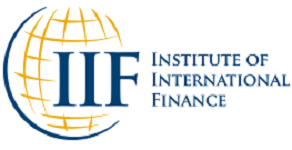Delegates representing African finance and development ministries, and the private creditor community virtually met to discuss the role of the private sector in supporting low-income countries through the COVID-19 crisis, and driving post-pandemic development.
Following the meeting the United Nations Economic Commission for Africa (ECA) and the Institute of International Finance (IIF) issued a statement stressing the role of the private sector in helping the recovery of economies across Africa. “We all agree that access to private capital is essential to economic growth and development, the post-COVID-19 recovery, as well as raising living standards and creating greater prosperity across Africa. Given the importance of private capital, and its growing role in Africa over the last decade, it is crucial that countries with market access and the appropriate macroeconomic framework continue to have the opportunity to this access as a complement to concessional financing,” the statement said.
“A number of these countries have pursued policies to increase investor confidence, attract investment, obtain greater market access, and lower their cost of capital – these efforts must be encouraged. Similarly, new initiatives to help further lower the cost of capital must be encouraged and implemented swiftly – such as the creation of repo markets for frontier issuances as part of the Liquidity and Sustainability Facility. Where additional liquidity can be provided it must be the priority.”
Regarding the upcoming discussions about the G20’s Debt Service Suspension Initiative (DSSI) at the International Monetary Fund and World Bank Annual Meetings, the group noted that extending the bilateral DSSI through 2021 would allow much-needed debt relief. All creditor countries are encouraged to participate fully in an extended DSSI.
Further, the group said “the upcoming meetings should include a discussion on how to capitalize international financial institutions so they can pursue credit-enhancement frameworks with the borrowing countries and the private sector to lessen the impact of COVID-19 on the world’s poorest and most vulnerable.
“No two countries entered the crisis in the same position, and their economic situations continue to reflect the diversity of the African continent. Accordingly, we recommend a case-by-case approach to resolving any potential insolvencies as the most viable solution. However, we also take note of the work of the IMF on a new debt restructuring framework that would allow countries willing to participate to opt in.
“All stakeholders, including debtor countries and the private sector, should have a seat at the table and their views must be considered. We strongly encourage open, inclusive and transparent consultation with private creditors and African Sovereigns as reform options are considered on the private sector initiatives as well as the debt restructuring framework, and building on the recently concluded UN Financing for Development conference.”
Representing the private sector, the IIF has helped coordinate the views of over 100 of the world’s foremost asset managers, banks, and other financial institutions providing private finance to nations and companies through Eurobonds, syndicated loans, trade finance and other credit structures across the continent of Africa. These investors bring significant expertise and experience in Africa and other emerging markets, and represent total assets under management in excess of $45 trillion.
This meeting also follows up from the ministers of finance and development meetings the ECA has been convening as part of its support to member states on the crisis, and is part of a continued dialogue between the public and private sector. The group has agreed to follow up as appropriate.

